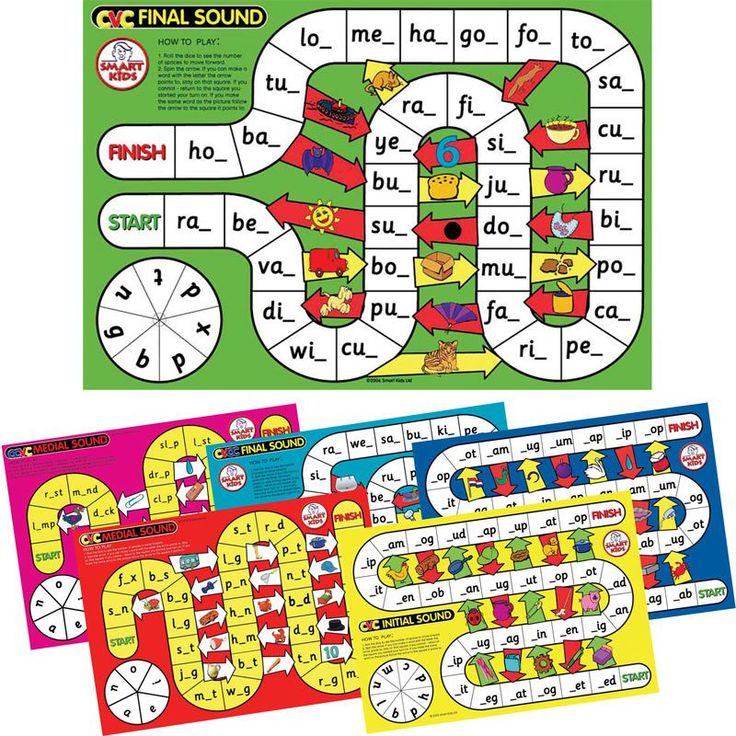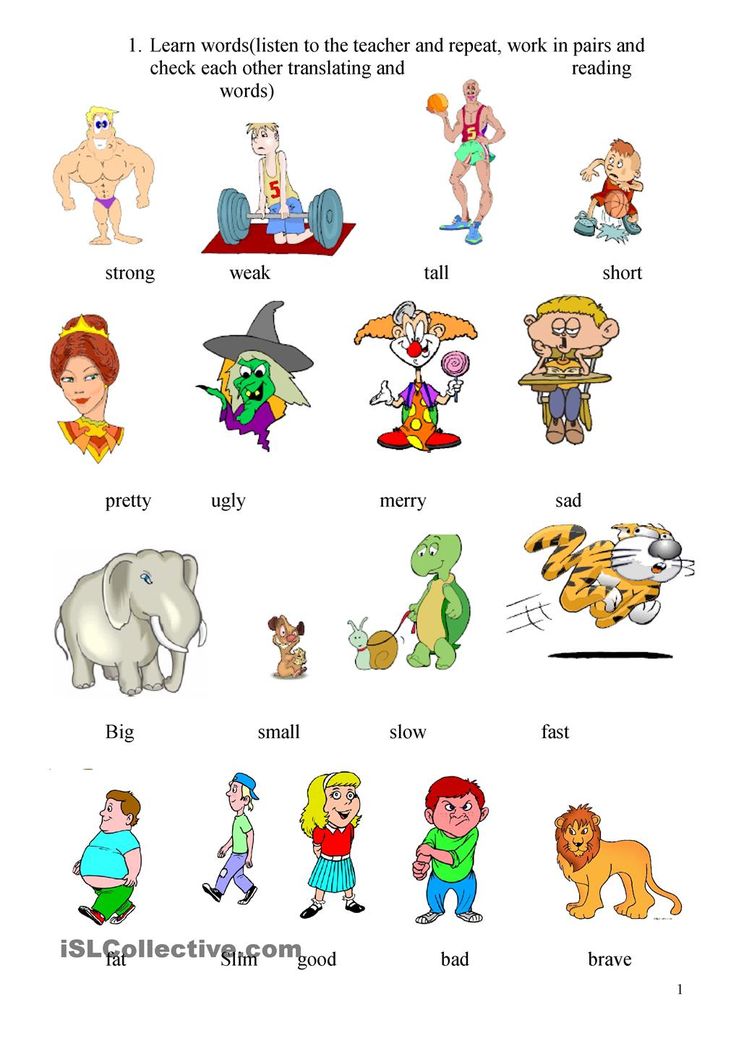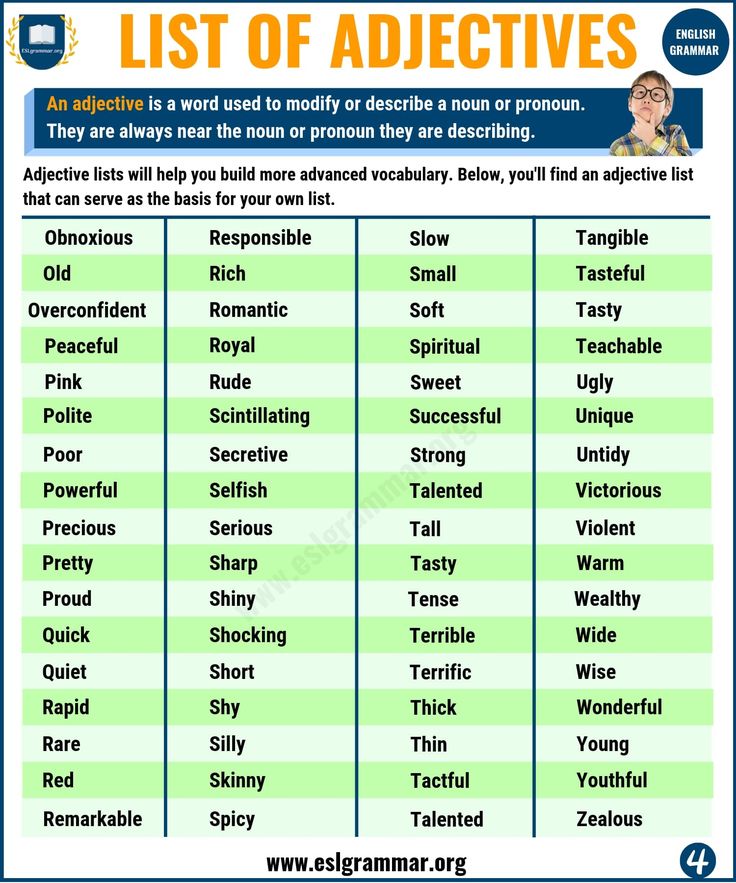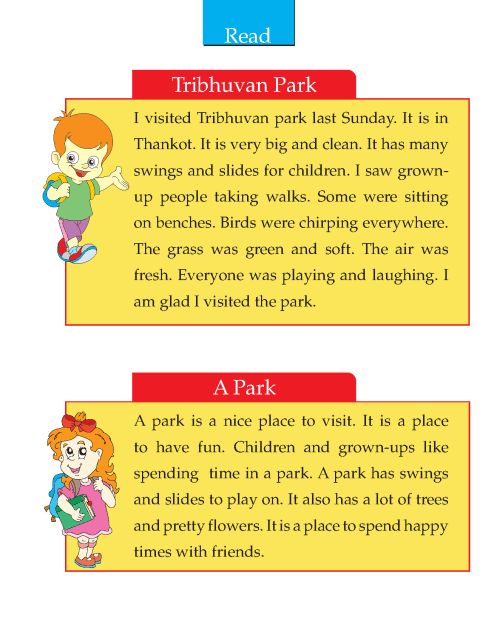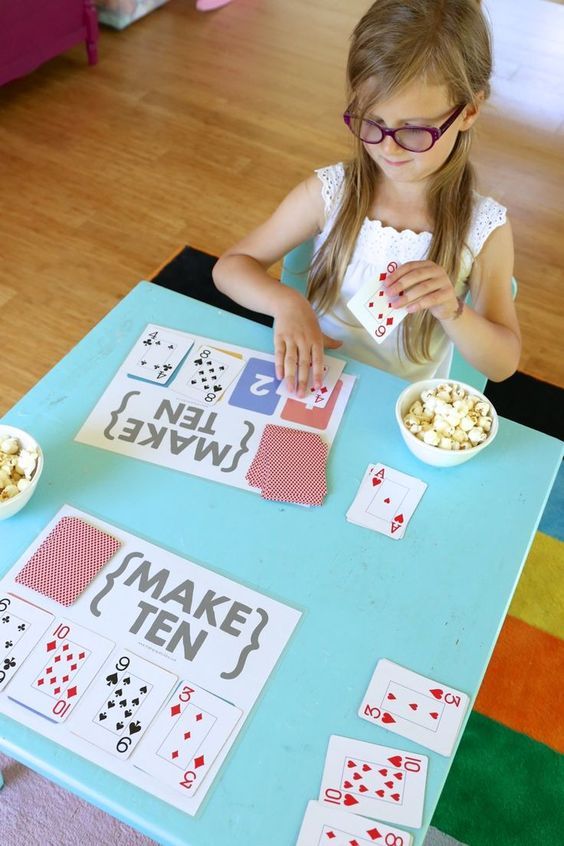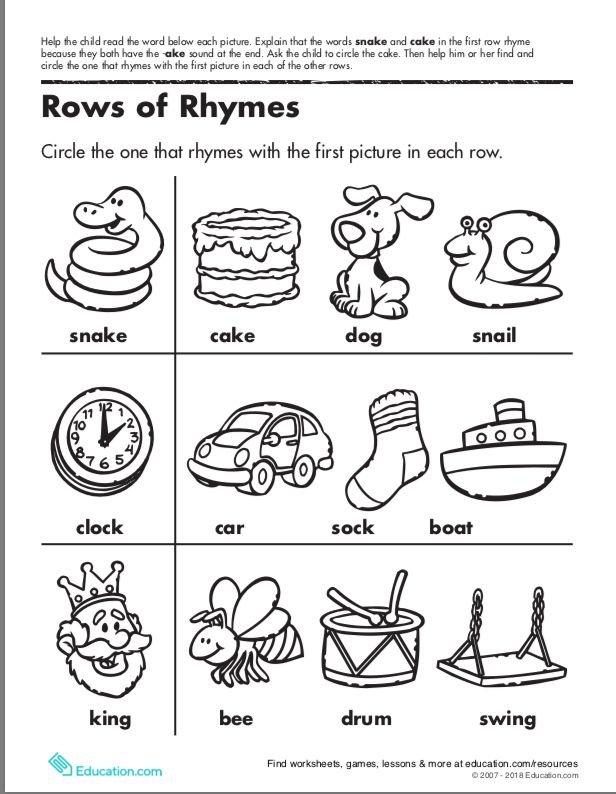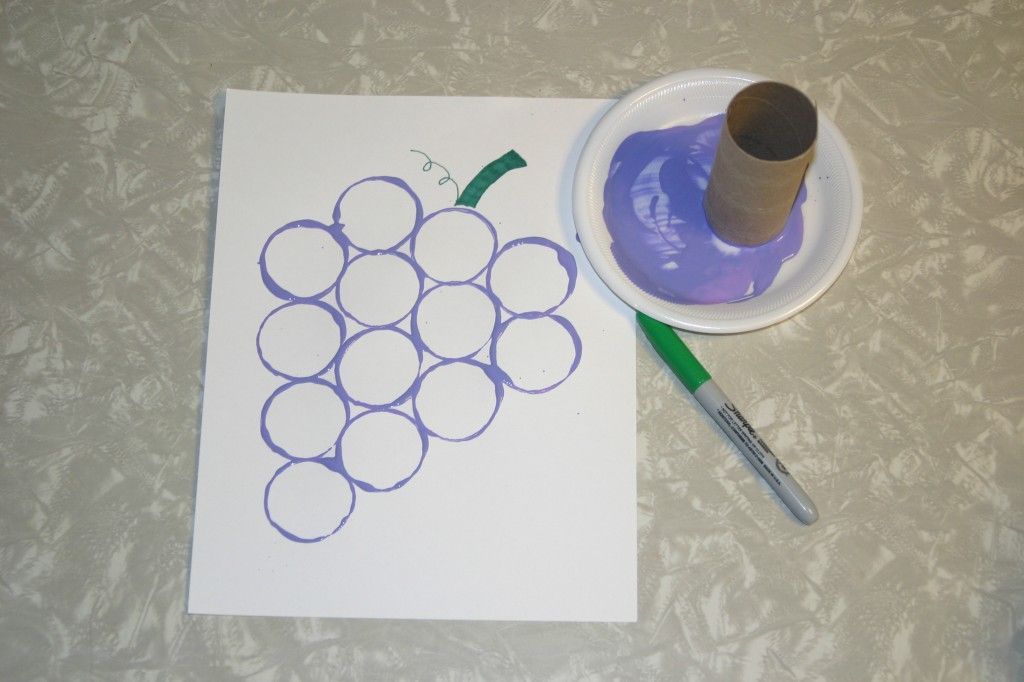All spelling games
Spelling Games — Power Spelling
Online Spelling Games - Spelling Bee
Think you have what it takes to make it to the National Spelling Bee? The Spelling Bee Game by Power Spelling starts out at the classroom level. Win that, and you are off to the School Spelling Bee. Advance to the District Spelling Bee if you are best at the school.
Try this fun spelling game and we believe you will find this one of the best Spelling Bee Games online! Practice with our Spelling Bee Game and soon you may be off to the State Spelling Bee, then Regionals and finally the National Spelling Bee! Good Luck!
Spelling Adventure Game
Word Racer Spelling Game
Take your character on a quest through the thick forests and icy mountains of our 3 different spelling adventures. Spell the words and collect all the food to complete each level. Break bricks and barrels, avoid obstacles and enemies on your way! A great spelling game for 2nd grade and up.
Word Racer is a fun to play spelling game where students hear a word an are asked to spell the word as quickly as they can. This online spelling game tracks the timing for individual students on their leader board, providing the student with an immediate sense of accomplishment.
Letter Seeker Spelling Game
Letter Seeker requires words to be spelled correctly, letter by letter, in order on each level. One of the favorite spelling games online, students collect each letter by running over it as the player character. As an added challenge students must also avoid the enemy miners who seek to stop them from gaining this spelling knowledge!
Letter Quest Spelling Game
Letter Quest is a traditional game that provides students with the opportunity to spell each word by filling in letters one at a time. Rewarding the players with fun animations and treasure that appears on their side of the screen provides a more engaging format for an online spelling game or quiz.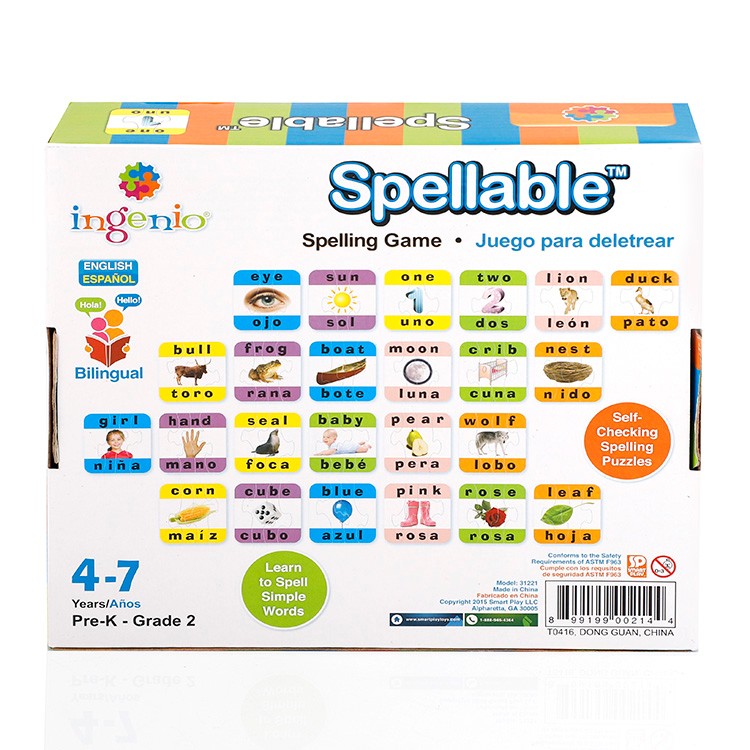
Complete the Word
Complete The Word is a letter recognition game that provides students with the challenge of spelling the word by figuring out which letter is missing from each word. Students will have access to four possible options for the missing letter and must choose the correct one in order to advance. This has become a favorite spelling game online for grades K-3.
Word Search Unscramble Game
Word Search allows students to search for and highlight spelling words. When students correctly select one of their assigned words the game will speak the word to the player and highlight that word on the right side of the screen.
Letter Pop
Letter Pop allows students to select one letter at a time as the balloons fly around the screen to correctly spell each word from their list.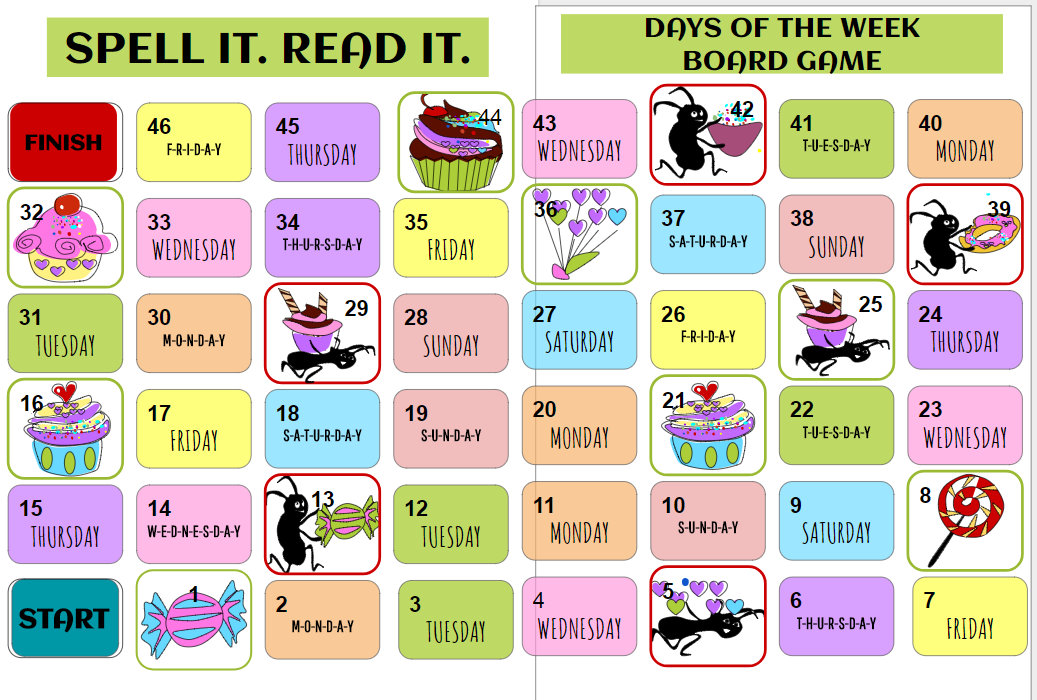 This is a fun spelling game activity targeted to the early learners and there is also a game with kites instead of balloons!
This is a fun spelling game activity targeted to the early learners and there is also a game with kites instead of balloons!
(NEW GAME) Word Builder
Word Builder is an engaging way to build your word lists one block at a time!
Register Now and Give us Feedback on our Online Spelling Games!
Students Play Power Spelling Games Online!Watch the video below to see how teachers create assignments for the students. Create a word list or assign an existing one, choose the game for the word list and students can practice their spelling words immediately in our spelling games! You can do your spelling test online with Power Spelling!
Free Online Spelling Games for Kids
We have fun, free online spelling games for kids in addition to the practice and test sections of our website.
These interactive spelling games can be played with our imported lists or play spelling games with your own words.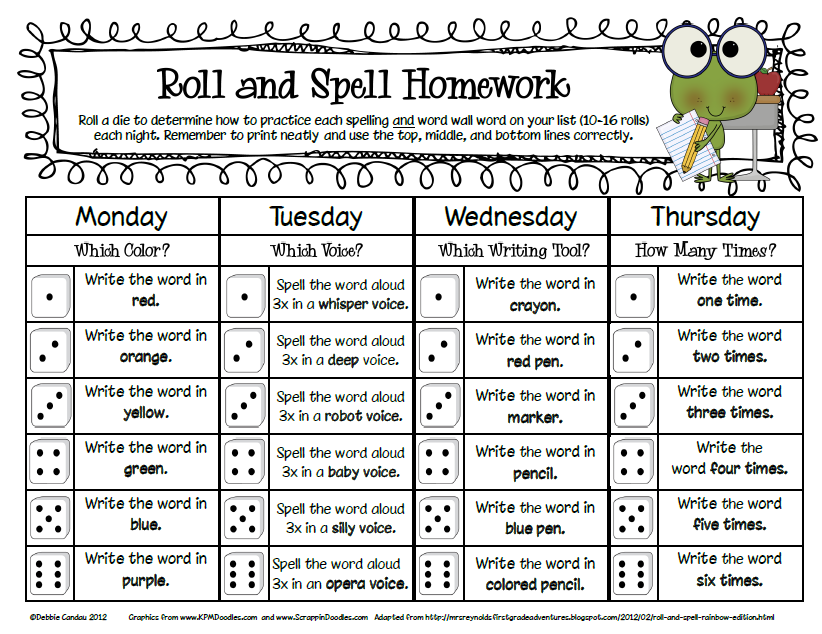
Subscribe to Home Spelling Words!
Spelling has never been more fun! Please let us know what kind of games you would like to play on this site by emailing us at [email protected] or by posting on the Home Spelling Words Facebook page. These are the perfect games to help with spelling words or lists assigned by your school. Practice as much as you like to improve your spelling test grades.
Crazy Fish Game
Can you help Crazy Fish eat the correctly spelled words on surfboards? Test your spelling skills by making your own
spelling lists or by using our spelling lists. If you have children who hate spelling, then this is the kind of spelling
help you need. Enter easy words, hard to spell words, holiday lists or anything you like. Crazy Fish is just one of
the many new spelling games for kids that we’ve recently developed. Use these fun word games for students to improve your
child's spelling or even vocabulary.
Use these fun word games for students to improve your
child's spelling or even vocabulary.
Spelling Memory Game
Memory Games are always a favorite, and this interactive spelling game will keep your children entertained. Your student will get to know and recognize their spelling lists through playing this memory game with their own spelling words from school or with our grade appropriate spelling lists developed by teachers. This is one of our many new great spelling word activities for kids.
Play with Kindergarten Lists Play with 1st Grade Lists Play with 2nd Grade Lists Play with 3rd Grade Lists Play with 4th Grade Lists Play with 5th Grade Lists Play with 6th Grade Lists Play with 7th Grade Lists Play with 8th Grade Lists Play with 9th Grade Lists Play with Themed ListsKing Cactus Game (Hangman Spelling Game)
Our fun King Cactus game is a hangman style game.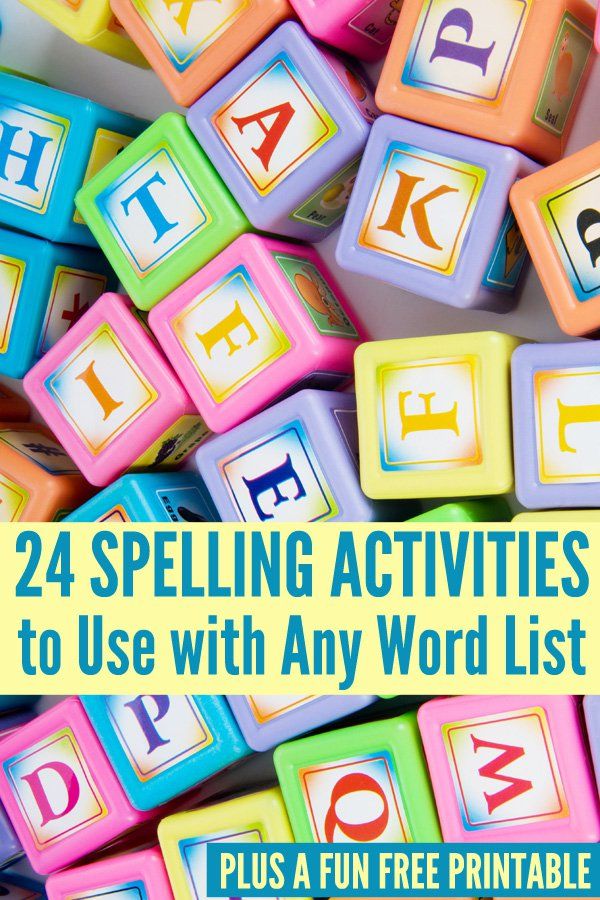 The object of the game is to save the
fish from getting caught by the fisherman! Select a letter that you think is in the word
and if it is wrong, bits of a fish start to appear on the hook. If you can't guess the
word, then the whole fish in on the line and you are caught and end up in the fisherman's bucket!
The object of the game is to save the
fish from getting caught by the fisherman! Select a letter that you think is in the word
and if it is wrong, bits of a fish start to appear on the hook. If you can't guess the
word, then the whole fish in on the line and you are caught and end up in the fisherman's bucket!
Mouse Maze Spelling Game
Use the mouse maze game to practice spelling. Help Herman the mouse navigate toward each cheese.
Once Herman touches the cheese, your student will hear the spelling word and will be prompted to
spell the word to continue. If there are a lot of words on the spelling list, you may find
yourself helping Herman through multiple mazes until you've reached the end.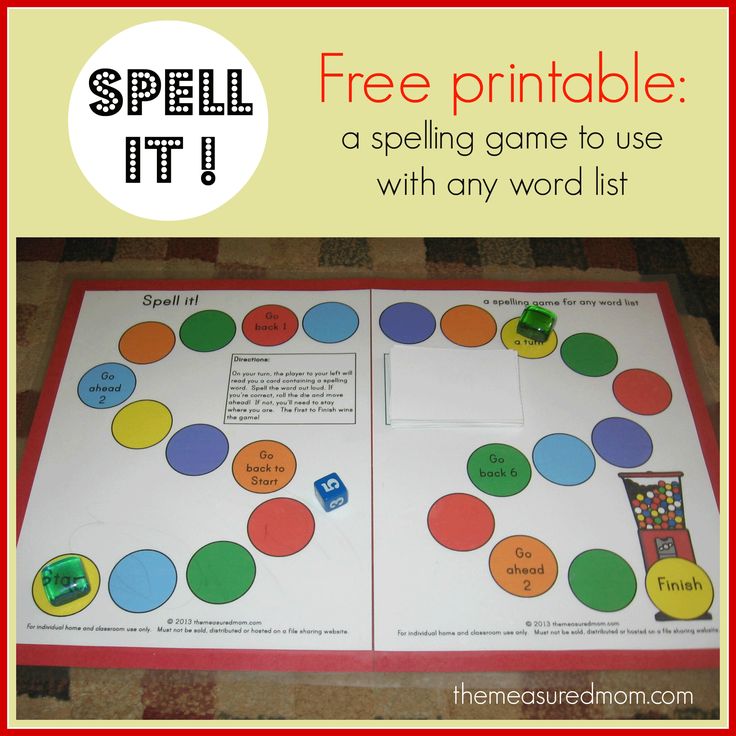
Word Scramble Game
If you're looking for fun spelling activities for kids then the Word Scramble Game was made for you! We take your spelling words and scramble them up and you have to guess the words by selecting letters. If the letter is right, it sticks, but if it is wrong, you have to keep trying. It's a unique way to practice spelling with an engaging spelling game.
Play with Kindergarten Lists Play with 1st Grade Lists Play with 2nd Grade Lists Play with 3rd Grade Lists Play with 4th Grade Lists Play with 5th Grade Lists Play with 6th Grade Lists Play with 7th Grade Lists Play with 8th Grade Lists Play with 9th Grade Lists Play with Themed ListsWord Chopper Game
Chop Away at Your Spelling Lists until you get all the words right!
Word Chopper is another great original interactive spelling game developed by Home Spelling Words.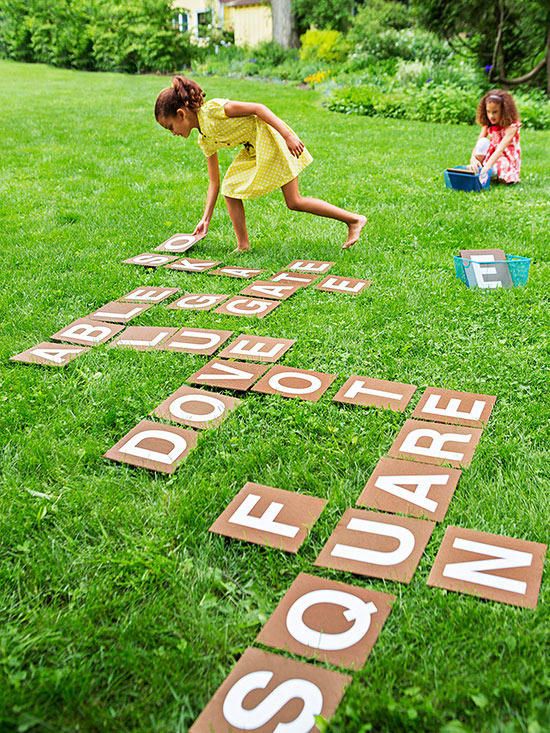 The object of the game is to spell the words correctly until you've spelled them all correctly.
Essentially, you whittle away at your spelling list by spelling words right. This is a great way
to practice for your weekly spelling tests as you are able to practice as much as you like, while
playing a fun game. Spelling practice is never boring when you can play games to learn.
The object of the game is to spell the words correctly until you've spelled them all correctly.
Essentially, you whittle away at your spelling list by spelling words right. This is a great way
to practice for your weekly spelling tests as you are able to practice as much as you like, while
playing a fun game. Spelling practice is never boring when you can play games to learn.
Word Search Game
Use the Word Search Maker to create a word search with your own spelling list. Every time you reset the
game it mixes up the words and changes the Word Search so it is fresh and interactive.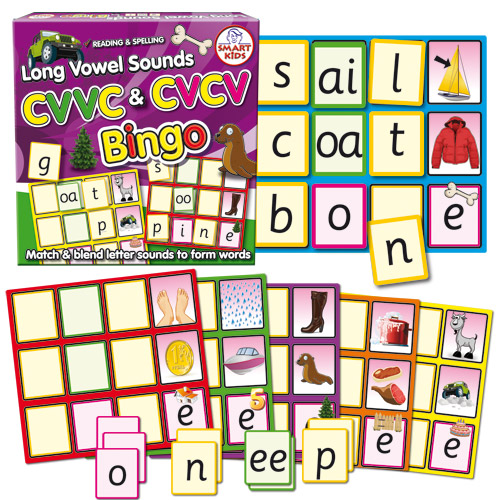 To play, highlight
the words with your mouse and they get crossed off your list until you are done. To mix up the words
and play again, simply click the play button.
To play, highlight
the words with your mouse and they get crossed off your list until you are done. To mix up the words
and play again, simply click the play button.
Fill-in-the-Blank Game
Our Fill-in-the-Blank game is interactive and changes every time! It randomly selects letters to hide. This makes the game different
every time you play, so your student can play over and over without getting bored. Just like the test or practice sections,
this game checks for capitalization, apostrophes, and even spaces. It's a great way to learn while having fun. You can
use your spelling lists from school or use ours.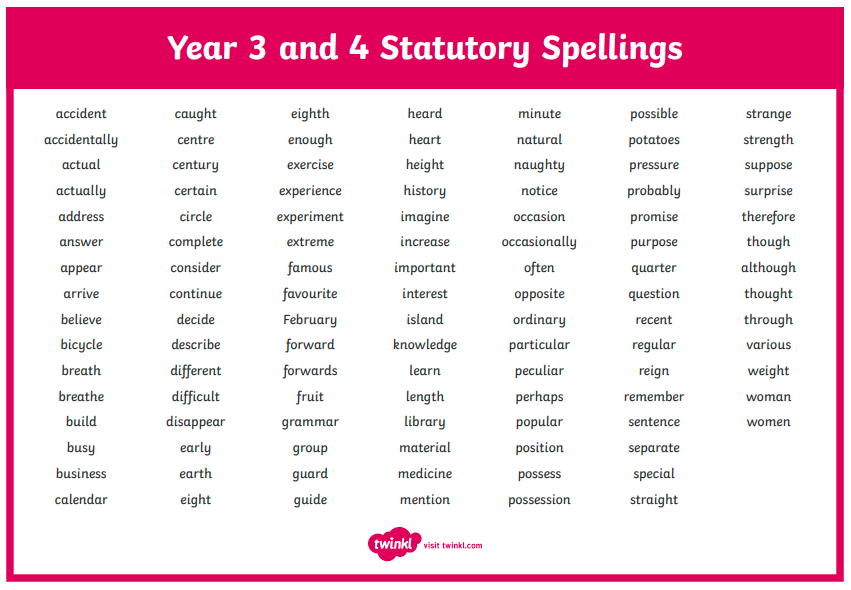 If you are looking for free online games for kids, all of our Fill-in-the-Blank
games are completely free to use.
If you are looking for free online games for kids, all of our Fill-in-the-Blank
games are completely free to use.
Spelling Soup Game / Word Catcher Game
The Spelling Soup game drops words from your spelling lists. Students must catch the correctly spelled words in the bowl to get points. This game changes every time you play and helps students learn to recognize correctly spelled words versus misspelled words.
Play with Kindergarten Lists Play with 1st Grade Lists Play with 2nd Grade Lists Play with 3rd Grade Lists Play with 4th Grade Lists Play with 5th Grade Lists Play with 6th Grade Lists Play with 7th Grade Lists Play with 8th Grade Lists Play with 9th Grade Lists Play with Themed ListsBink Bonk Game
Bink Bonk is a fantastic educational game.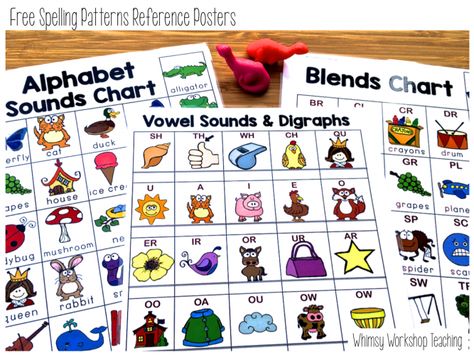 The player must use the paddle to hit the purple blocks and they
will be prompted to spell one of their spelling words from their list until their entire list is completed.
The player must use the paddle to hit the purple blocks and they
will be prompted to spell one of their spelling words from their list until their entire list is completed.
Spelling games | Educational and methodological material on the Russian language on the topic:
SPELLING GAMES.
1.Check Dunno.
Dunno played with words, making one word out of two. Check if he
composed the words correctly?
Paul+Osa = stripes
Kol+Osa = colosses
OG+Wasp-fits
Tooth+I = teeth
oak+b+I = Dubya
2. Who quickly correct the errors. (Subject: Capital letter)
The cards have misspelled text.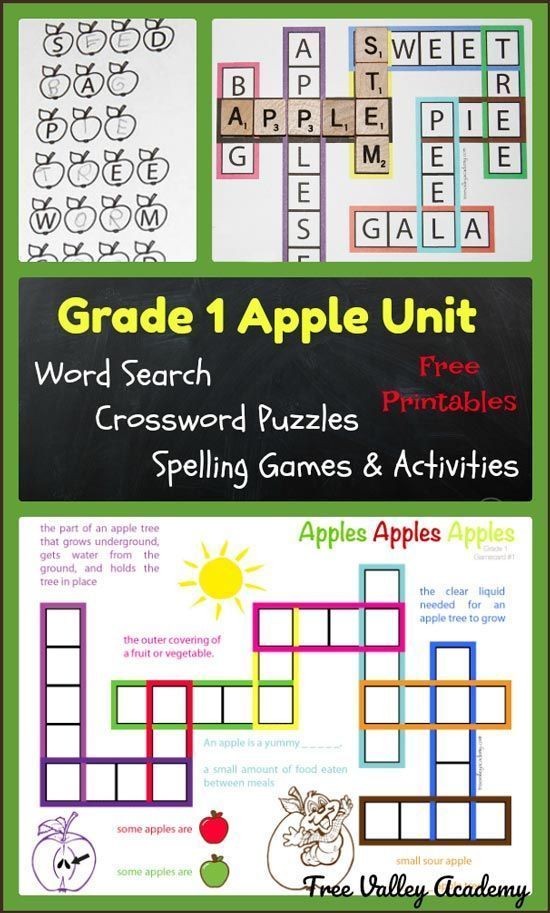
Task: Find and correct all capitalization errors as quickly as possible.
3. Read the offer. (Topic: Case endings.)
Cards are made from an album sheet on which sentences are written, but instead of nouns, the corresponding figures are placed.
Assignment: while reading a sentence, students use pictures to name nouns in the appropriate case, choosing the correct ending.
4. "Choose three words" (The game is used to reinforce any topics in the Russian language)
Purpose: To follow the formation of spelling skills, taking into account the stage of work on spelling.
The choice of words depends on the topics studied or covered.
Nine words are written on 9 cards:
1st set: fish, blizzard, stocking, oak trees, jam, scarecrow, streams, plague, mushroom.
2nd set: entrance, warehouse, crow, hail, filming, treasure, gate, rise, sparrow.
Bread
CLU-KA
Kali-Ka
Bere-kiki
FILKI
Obl-ki
Pied KI
Marty-ka
Redi-ka
Du-ki
Lo-ki
Tetra-KA
CLA
Tra-
Carko-Ka
Li-KI
Ostro-oki
Promotion-KA
Blue 9000 9000
Refined
Tasks:
Explain spellings by choosing test words.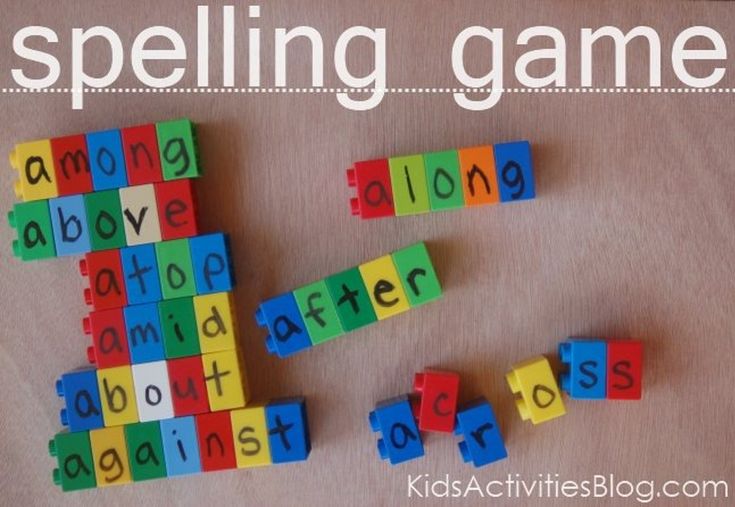
6. Game "Ball"
Didactic task: Repeat the formulation of clarifying questions and case endings.
Game objective: Help the proposals get to the Ball.
Contents of the game:
Ball in the Grammar Kingdom today. There were many proposals for it. But the sentry will not let them into the palace until each noun from those who have appeared has its conjugation indicated. Help the proposals get to the Ball. What questions does the clock noun ask?
Materials:
A table is drawn on the board, the halves of which are separated by a sentry. The proposal is analyzed by one student, tips from the class are accepted.
Cherry blossoms in May Mother gave her son a book Swallows are returning from Africa A hare feeds on tree bark Sister came to her brother Sasha wrote a letter A fox hid behind a bush, etc. H a s o v o y In (what?) May blooms (what?) bird cherry. etc.
7. Game "Find the ending"
Didactic task: Repeat the case endings of nouns.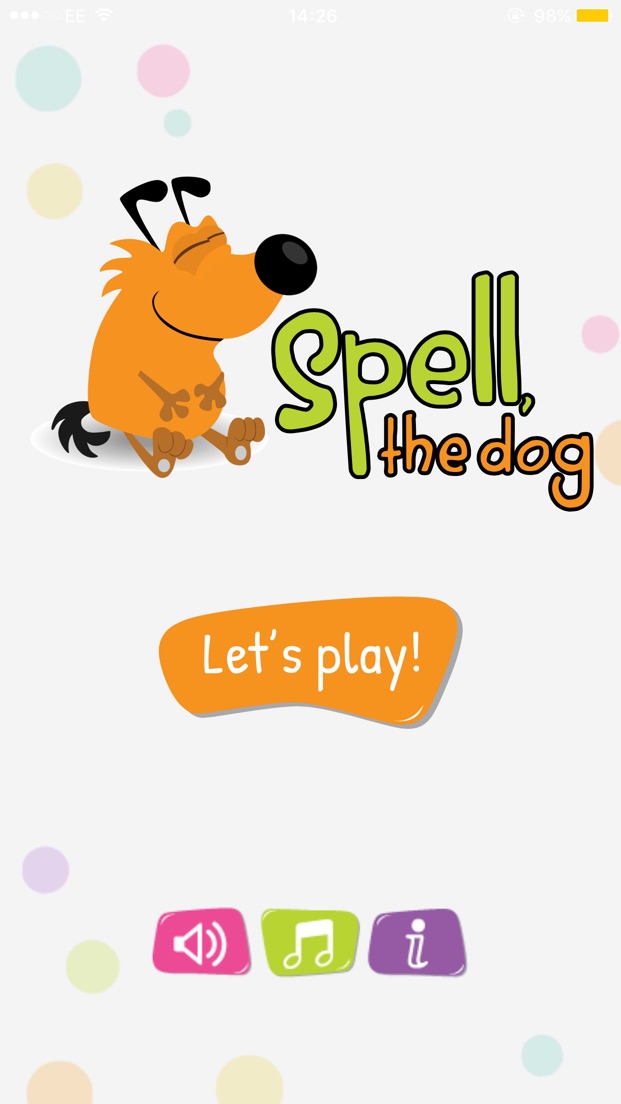
Game task: Find the endings of some words in sayings.
Content of the game:
“The ending is a very changeable, moving part of a word. She can easily get lost. Find the lost endings for these proverbs.”
Materials:
Cards
- Pick the berries... you will find the box.
- Drop by drop... and the stone hammers.
Without a primer and grammar... Mathematics cannot be learned...
8. The game "Nicknames"
Purpose: formation of the process of inflection and word formation, consolidation of phonetic and grammatical analysis of words, spelling of proper names.
Move: Form animal names from the following words:
BALL, ARROW, EAGLE, RED, STAR
Make proposals.
BALL, ARROW, EAGLE, GINGER, STAR
Highlight the part of the word that you used when composing nicknames (suffix, ending).
9. Game "Team chain game"
Didactic task: Complete the appropriate nouns in the accusative case.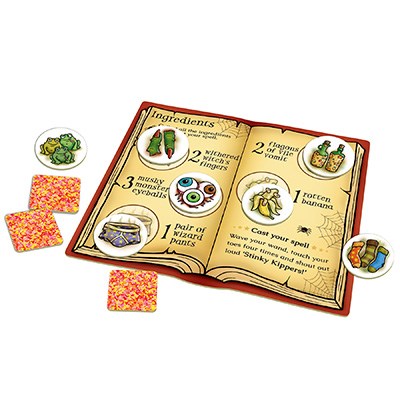
Game objective: Make the chain as long as possible.
Contents of the game and Materials:
- Listening to music, mom...
- I am writing a dictation, a letter,...
- They are building a tower, a house,... etc.
10. The game "Hard - soft"
Purpose: to create conditions for repeating the spelling of hard and soft signs.
Students are divided into two teams. One team is called “Stone”, the other is called “Water”. The “Stone” team gets up if I read a word with a hard sign, if I read a word with a soft sign, the “Water” team gets up.
Words: congress, drive in, blizzard, pours, entrance, pour, announcement, stakes, runners, detour, ears of corn, drink, shooting, etc.
11.Game: Be careful.
Purpose: to activate memory, attention, vocabulary, based on knowledge of the rules.
Write out from the proposed poems with combinations of zhi, shi:
1. Siskins lived in a hut,
Mice, hedgehogs, swifts,
Walruses come to visit them
Both giraffes and snakes.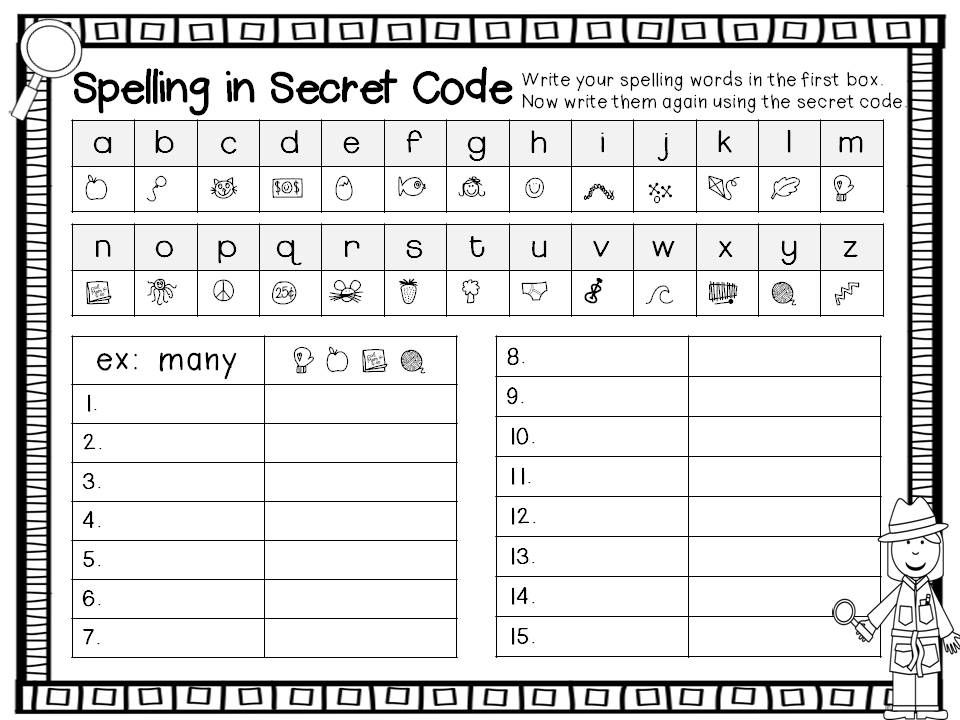
2. Vest, animal, belly,
Giraffes, painting, lives,
Briar, tires, reeds,
Cars and pencils,
Circle, serve, be friends and live,
Hurry, make laugh,
Hiss and sew.
All combinations of ZhI and SHI
Only with the letter I write!
12. Game: Slovoznaikin, give me an answer.
Purpose: to determine the level of development of children, to develop memory, thinking, speech.
Children are invited for a certain time to remember and write down as many proverbs and sayings, riddles and quatrains as possible, in which words and a given rule are found - "Spelling of words with combinations of zhi, shi." For example:
Proverbs and sayings:
Life is given for good deeds.
You can't hide an awl in a bag.
If you hurry, you will make people laugh.
To live life is not a field to cross.
Friendship is like glass, if you break it, you won't stick it together.
Riddles:
Two birch horses
They carry me through the forest.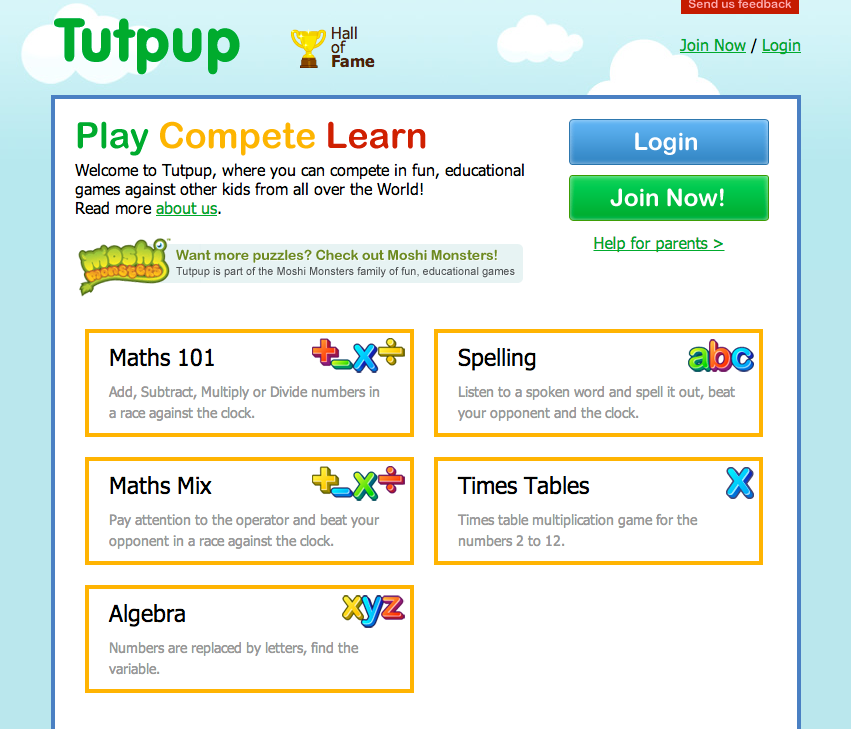
These red horses,
And their name is ... (skis).
He is tall and spotted
With a long, long neck,
And he eats leaves,
Leaves of trees (giraffe)
Quatrain:
She sewed a fur coat - she sewed a skirt,
She sewed a hat - she sewed a slipper!
Good seamstress Natasha!
13. Game: Change the letter.
Purpose: to intensify the mental activity of students, develop spelling and phonetic vigilance, attentiveness, logical thinking.
Children are offered the original word with a spelling, they change either one or two sounds in it sequentially, while maintaining the combination -chk-, and receive new words. The one with the most words wins.
daughter pen
barrel river
night candle
bump stove
point kidney
cloud daughter
wheelbarrow night
14. Game: Name one object.
Purpose: to develop methods for checking unstressed vowels.
The teacher says a word denoting many identical objects, and the students name one such object and explain what vowel should be written in the root of the word. For a correct answer, the row receives a point. The winner is determined by the number of points.
For a correct answer, the row receives a point. The winner is determined by the number of points.
Sample material: words: doctors, eyes, rooks, gardens, basins, balls, sides, rains, yards, moles, seas, knives, fruits, fields, horns, etc.
15. Game: Capital letter.
Purpose: to reinforce the rule of capitalization in words.
Equipment: each student has a set of signal cards.
The teacher invites the class to listen carefully to the poem. Then the students mark with signal cards, all the rules for writing a capital letter, which are mentioned in the poem. Next, you need to protect each of your answers, that is, explain which rule is fixed. The winner is the one who manages to protect all signal cards.
An ordinary letter has suddenly grown, The letter
Has grown above the letters - girlfriends At the line at the beginning,
They look with respect So that we notice the beginning.
In the letter of a friend, First name, last name
But why? Are written with her,
For what merits? To be more noticeable and more visible,
To sound loud and proud
The letter did not want to grow by itself, Your name
The letter is entrusted with an important task: The name of the street, city.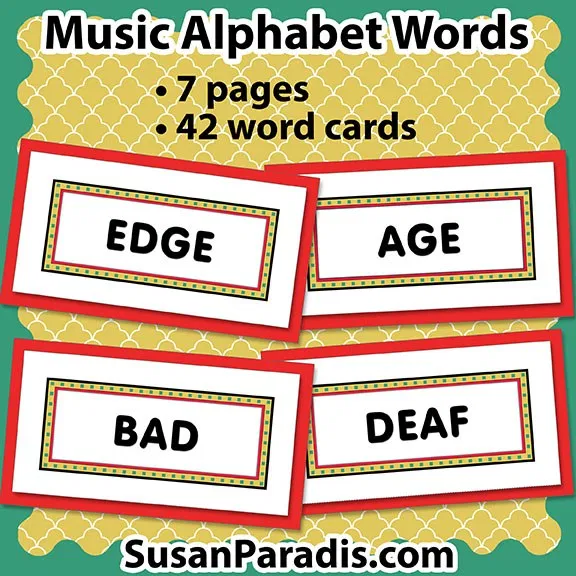
Put in the word Large letter -
Not in vain and not easy Not at all empty,
The letter is so tall.
In a big letter -
Respect sign. (S. Izmailov)
16. Game: Half a minute for a joke.
Purpose: to fix the spelling of the capital letter in animal names.
Equipment: the board contains the names of those animals that are found in Yu. Chernykh's poem: a dog, a chicken, a cow, a cat, a horse.
The teacher asks the children to listen carefully to the poem and say what is wrong with it. The correct answer is rewarded with a game token. Some children add nicknames to the names of animals on the board, while the rest do this work in a notebook.
Once upon a time there was a grandfather and a woman
With a little granddaughter.
They called their red cat
Zhuchka,
And they called Crested
They called the foal,
And they also had
Burenka hen,
Murka dog,
And two more goats -
Sivka and Burka.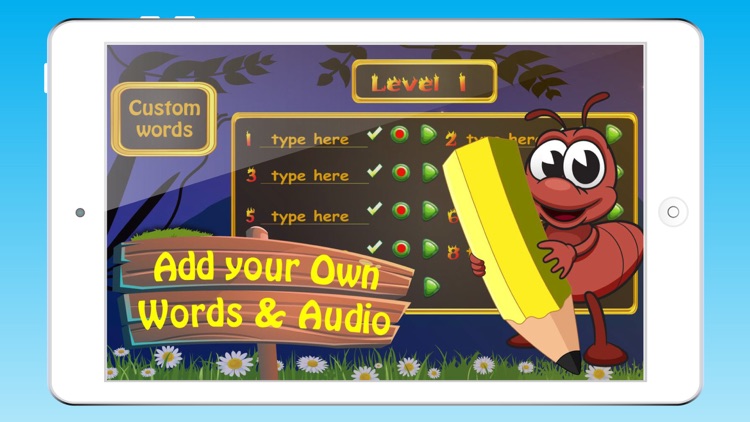
17. Didactic game "Be careful."
Purpose: to activate memory, attention, vocabulary, based on knowledge of the rules.
From the proposed poems write out words with combinations of zhi, shi:
1. They lived in a hut of siskins,
Mice, hedgehogs, swifts,
Walruses come to visit them
And giraffes and snakes.
2. Vest, animal, belly,
Giraffes, painting, lives,
Briar, tires, reeds,
Cars and pencils,
Circle, serve, make friends and live,
Hurry, make laugh,
Hiss and sew.
All combinations of ZhI and SHI
Only with the letter I write!
Games for learning English - Classification of games
Game ... From the first days it is an integral part of a child's life. Childhood is unthinkable without her. Playing with a child, you can not only teach him to read, write and count, but develop creative abilities, temper physically and morally. After all, for a child, play is not entertainment, but life itself.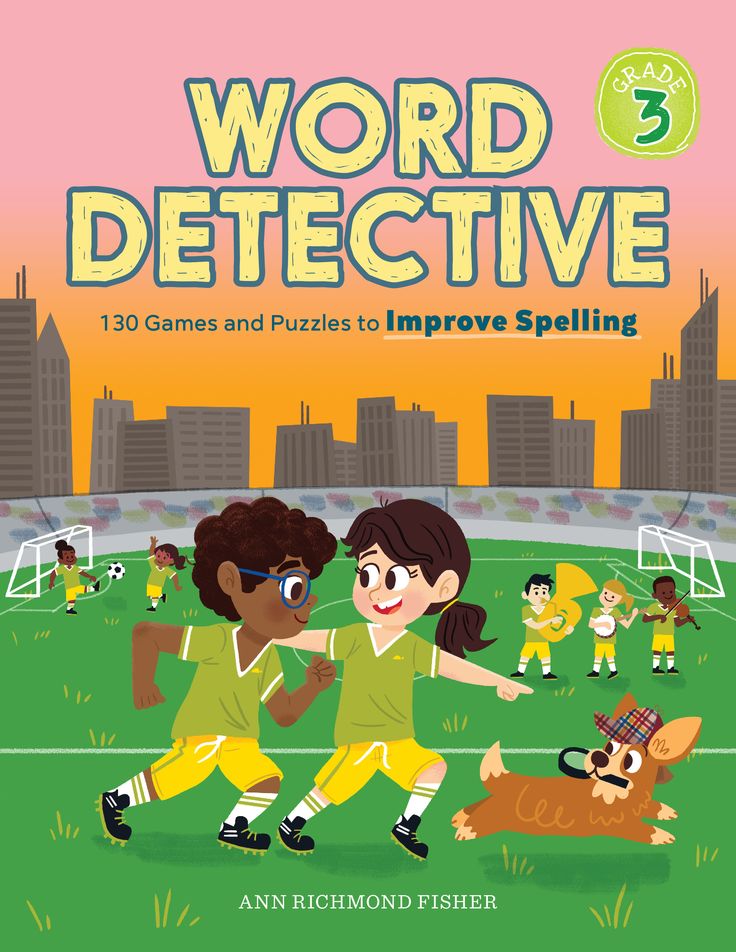
Thanks to the use of various games in foreign language lessons , the child learns a foreign language in a fun and entertaining way, develops memory, attention, intelligence, team spirit, supports interest in a foreign language .
Using games in English lessons helps relieve fatigue and stress, create a friendly atmosphere in the classroom, remove the psychological barrier, and increase motivation to learn the language. In the game, the abilities of the child, his character are most fully manifested. Of course, it is worth remembering that each age period is characterized by its own type of leading activity.
The methodological typology of games for learning English is as diverse as their purpose. In this article, I would like to talk about the most popular types of games. First of all, it should be noted that at present there is not a single unambiguous classification, and all existing ones are very conditional.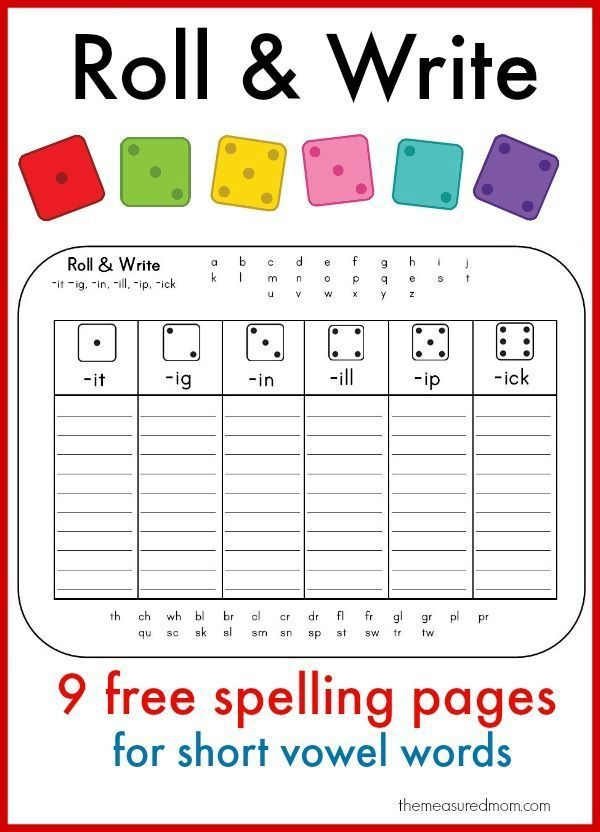
In the book " Educational games in English lessons " M. F. Stronin distinguishes two categories of such games:
• Grammar, lexical, phonetic and spelling games that contribute to the formation of language skills.
• Creative games that contribute to the further development of speech skills and abilities, allow you to show independence
Leaning towards the classification of M.F. Stronina, I would like to consider the following types of games in more detail:
1. Grammar games for learning English.
The main goals of grammar games: to teach children the use of speech patterns containing certain grammatical difficulties; practically apply knowledge of grammar, create a natural situation for the use of grammatical structures in natural situations of communication
• Act as you say .
Purpose: training in the use of Present Continuous .
Game progress: The task is to execute commands with comments.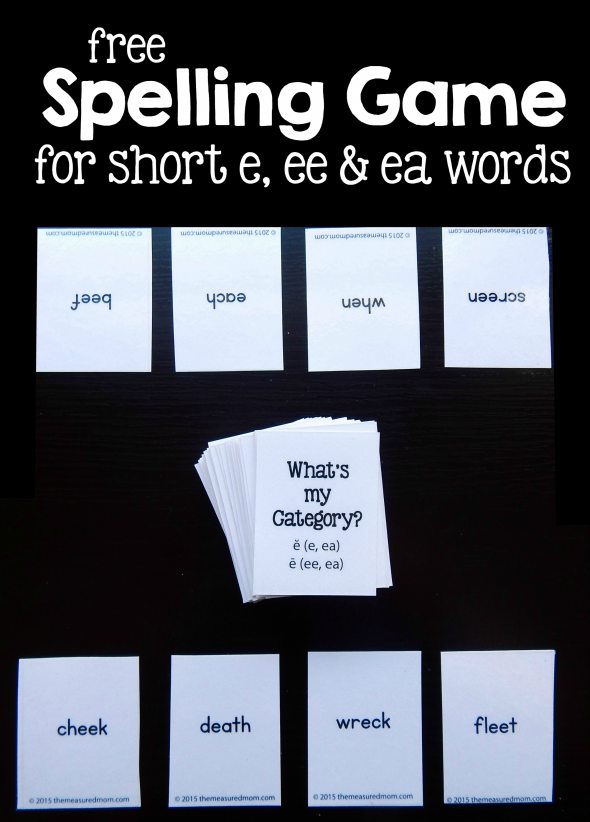 3 students play: 1 - gives a command, 2 - performs and says what he is doing, 3 - describes the actions of the second.
3 students play: 1 - gives a command, 2 - performs and says what he is doing, 3 - describes the actions of the second.
1 - Play volleyball. 2 - I am playing volleyball. 3 - He/ She is playing volleyball.
1 - Wash your face. 2 - I am washing my face. 3 - He/ She is washing his/ her face.
1- Do exercises. 2 – I am doing exercises. 3 – He/ She is doing exercises.
• Hide-and-Seek in the Picture.
Purpose: to practice the use of prepositions of place.
Game progress: Large room picture required. The driver (one of the students) "hides" somewhere in the picture, writes on paper where he hid and gives it to the teacher. Children, asking the driver general questions, “look for” him in the picture.
- Are you under the bed?
- Are you behind the door?
- Are you on the chair?
- Are you in the box?
2. Lexical games.
Lexical games are focused on helping children master lexical material.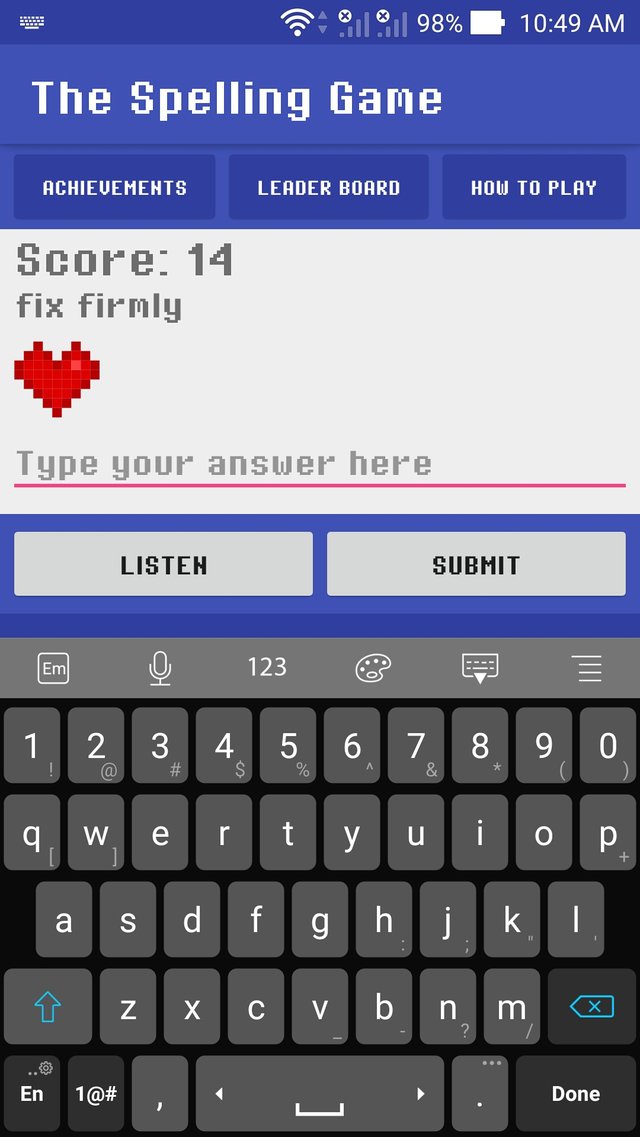 The purpose of these games is: to help in the acquisition and expansion of vocabulary, the use of vocabulary in situations close to the natural environment; acquaintance of the child with the compatibility of words, the development of the speech activity of the child.
The purpose of these games is: to help in the acquisition and expansion of vocabulary, the use of vocabulary in situations close to the natural environment; acquaintance of the child with the compatibility of words, the development of the speech activity of the child.
• Memory game
Purpose: memorization of thematic vocabulary (animals, fruits, vegetables, food, clothes, professions, home, family, sports, etc.)
Game progress: The teacher lays out 10 cards with pictures in front of the students, everyone calls the words in unison. The teacher asks to turn away or close your eyes and takes one card. Students must guess which card is missing by calling all 10 words in order. There are no cards left at the end, but the children call all the words in the correct order.
• Champion Game.
Purpose: to consolidate vocabulary on the topic of the lesson (animals, fruits, vegetables, food, clothes, professions, home, family, sports, etc.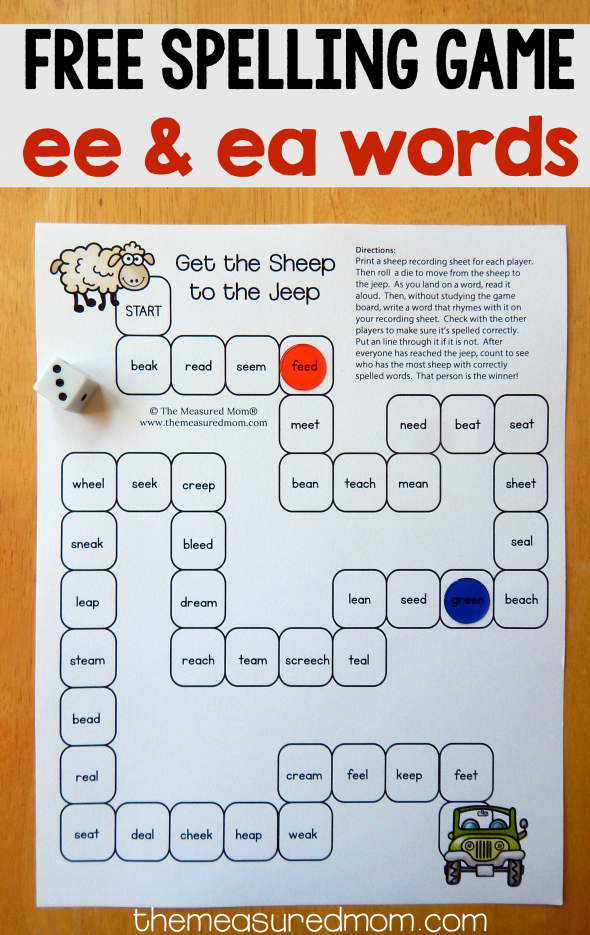 ), memory training.
), memory training.
Game progress: starting the game, the teacher says the first word. Each subsequent student must name all the previous words in the order in which they were included in the game, and say a new word. If someone forgot a word or mixed up the order, he is out of the game.
3. Phonetic games for learning English. .
At the initial stage of teaching a foreign language, a lot of attention is paid to the correct pronunciation of sounds. The educational goal of phonetic games is for children to correctly pronounce and recognize the required sounds in words, working out intonation. At the initial stage of learning a foreign language, phonetic games are used regularly. In the future, phonetic games are held at the level of words, sentences, rhymes, tongue twisters, poems, songs.
• Search for sounds
Purpose: the formation of phonemic hearing skills.
Game progress: The teacher shows the children pictures and clearly pronounces the names of the objects depicted on them.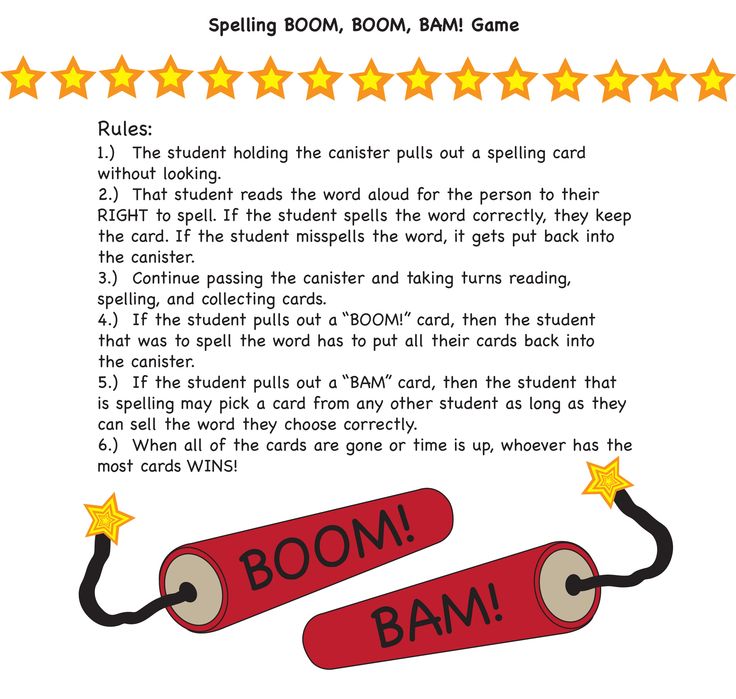 The children must show the picture in which the given sound is hidden. (Or clap your hands. The sounds are practiced with the children before the game starts).
The children must show the picture in which the given sound is hidden. (Or clap your hands. The sounds are practiced with the children before the game starts).
• Who is faster?
Purpose: formation and improvement of the skills of establishing sound-letter correspondences and the meanings of words by ear
Game progress: students are given cards on which the words in a foreign language are given in the first column, their transcription in the second, and the translation of words into Russian in the third. Words in a foreign language are numbered in order. As soon as the teacher pronounces a particular word, each student must put its number next to the corresponding transcription and translation into Russian (or connect all three correspondences with a continuous line). The winner is the one who quickly and better establishes the correspondence between the foreign word, transcription and translation.
Monkey Talk. Sound [ð]
Purpose: setting the correct articulation of the speech organs of students when pronouncing individual English sounds .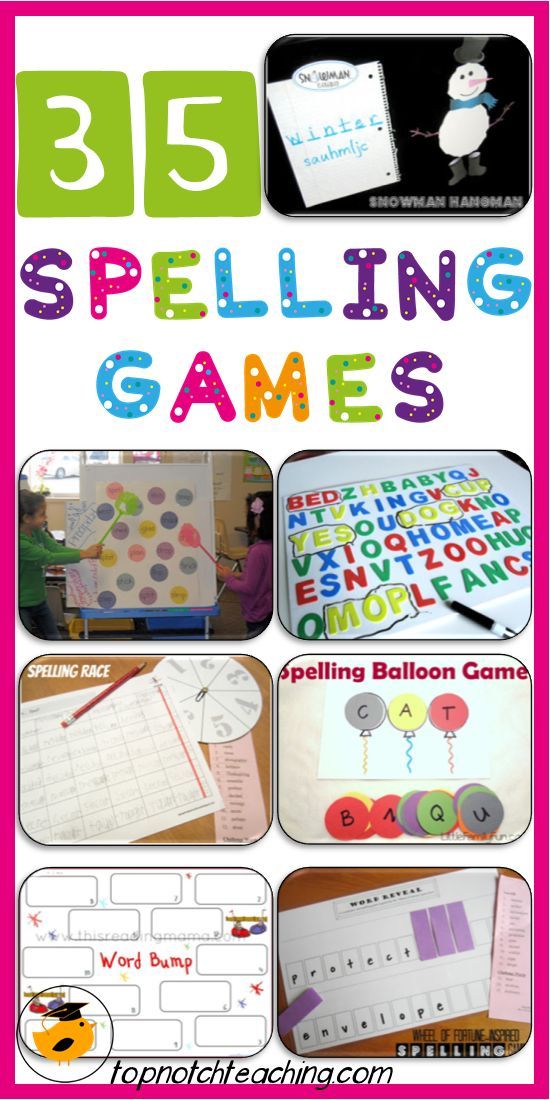
Game progress: “It seems to me that you can all portray little monkeys very well - how they make faces, how they chat. Monkeys in an English zoo speak English. And when they pronounce the sound [ð], they try very hard - they try so hard that they show their tongues to visitors. An angry monkey shouts at everyone: “They, they, they”, and a learned monkey speaks like a poet: “Thee, Thee, Thee”:
Little monkey in the tree
This is what he says to me,
“They, they, they
Thee, thee, thee”.
Monkey jumps from limb to limb
While I chatter back to him:
“Thee, thee, thee
They, they, they.”
Only the teacher can say the verse, and the students can say the words “Thee, thee, thee, They, they, they”, but in more prepared groups, all students can learn the verse.
4. Spelling games.
Spelling games contribute to the formation and development of speech skills. The main goal of these games is to master the spelling of foreign words.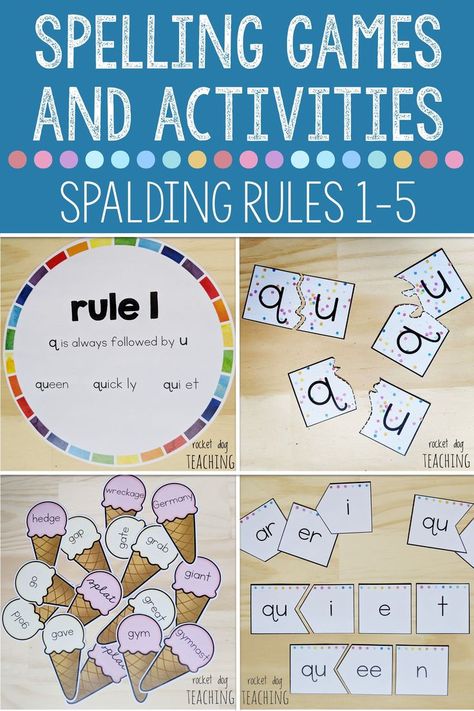 Some of the games are designed to develop the memory of children, others - to reproduce the spelling image of the word.
Some of the games are designed to develop the memory of children, others - to reproduce the spelling image of the word.
• Word composers
Goal: developing spelling skills
Game progress: the teacher writes a long word on the board, eg representanive. From the letters of this word, children must make new words and write them down. For example: present, tea, test, nest, part, art. The one with the last word wins.
• The Comb.
Purpose: consolidation of the studied vocabulary, development of spelling skills.
Game progress: the class is divided into 2 - 3 teams. Write a long word for each team on the board. Representatives of the teams take turns running up to the board and writing words that begin with the letters that make up the original word, vertically. Words of one command should not be repeated. The first team to spell the words correctly wins. Words can be of different parts of speech, as long as they are longer than the words of rivals.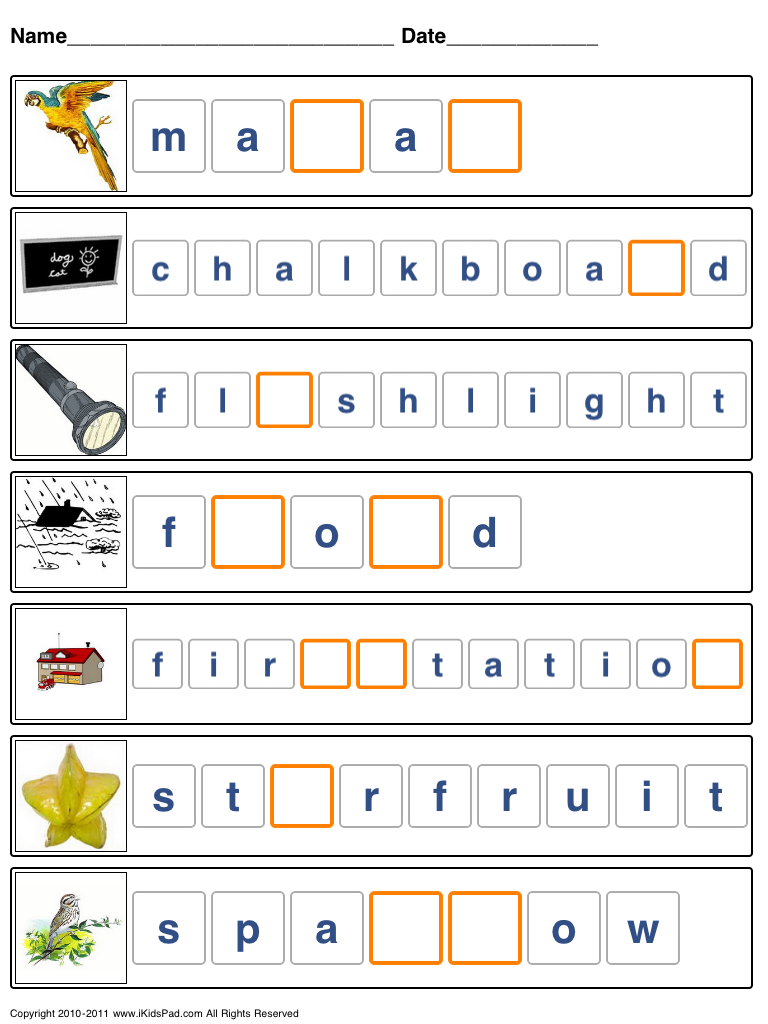
5. Creative games for learning English.
Contribute to the further development of speech skills and abilities. Bright, colorful materials that arouse interest in a child are of no small importance when learning a foreign language. In these games, the imagination is trained, the child learns to see the unusual in the most ordinary things. This is creativity, and thanks to it, free speech.
Use games in teaching a foreign language, because this is not just an entertaining technique or a way of organizing cognitive material, but also the comprehensive development of the child, helping to form his character.
Play with us!
Anna Kartashova
philologist, teacher of foreign languages
References:
1. Vereshchagina I.N., Pritykina T.A. English II ( lessons 44 - 54)
2. Vereshchagina I.N., Pritykina T.A. English III ( lessons 14 - 23)
3.